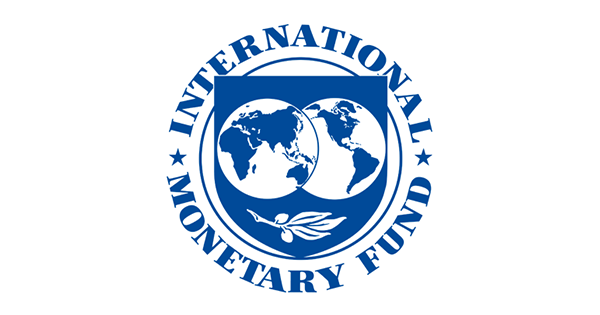Improving Access to Climate Finance


Increasing Accessibility to Local weather Finance








February 2, 2023















Welcome to this CARTAC forum on bettering access to local climate finance in the Caribbean. Allow me thank you all for collaborating. And let me choose a moment also to thank the CARTAC director, Christian Josz, and his employees for organizing this forum and supplying a venue for these discussions.
Weather adjust, in my perspective, is probably to be a single of the foremost macroeconomic, financial, and financial debt coverage issues that IMF users will experience around the coming a long time. Meeting this problem will demand an unparalleled and massive scaling up of world investments for weather adaptation and mitigation. The very good information is that at the present-day amount of $630 billion a yr, the scaling up has already started. ESG investments proceed growing as an asset class on the expenditure landscape. The undesirable news is that this quantity is however far shorter of the approximated financing essential for the inexperienced transition.
The actuality is that the existing levels of local climate finance are not only as well little, they are also dispersed inconsistently and inefficiently primarily in Rising Markets and Acquiring Economies. As well often—due to capacity constraints, details gaps, and possibly large upfront costs—the economies that are most susceptible to weather adjust and most in want of local climate finance, like the Caribbean nations, are also the countries that are much less capable to entry weather finance. This needs to modify if local climate finance is to satisfy the assure of meaningfully contributing to decarbonization and averting a climate disaster.
This is why we are here right now. This party will come at a fantastic time to tackle these problems presented latest fiscal and economic developments:
- On the just one hand, the global group and the private sector are earning sizeable initiatives to scale up local weather finance initiatives.
- On the other hand, the global financial system is however navigating as a result of tumultuous waters and most economies are struggling with significant headwinds. These stem from climbing inflation, elevated community debt, commodity rate volatility, geopolitical uncertainty from the Russian invasion of Ukraine, and the lingering results of the pandemic.
- Introducing to these challenges, debt supervisors and climate financiers in this home are also experiencing tighter monetary circumstances in the Caribbean area.
So, the crucial problem these days just before us is how to answer to these challenges. What is generally the case for the worldwide economic climate is similarly real for the Caribbean. Climate adjust is an existential threat to the region, and thus significantly, climate finance to the location has been insufficient to meet up with the region’s financial commitment requires. In phrases of physical dangers from climate modify, such as pitfalls from climbing sea degrees, the elevated frequency of weather-associated disasters, and coastal erosion, the location is disproportionately vulnerable given its geography. For that reason, there is also a predominant require to spend in weather adaptation. In phrases of changeover hazards, whilst there is a noteworthy distinction concerning tourism-dependent Caribbean economies with higher financial debt concentrations vs. commodity exporters with fiscal space, both will will need to access climate finance for the changeover to a greener economic system.
- For Caribbean economies that are tourist dependent, there will be the problem of greening the tourism sector and investing in local climate adaptation although sustaining debt sustainability. In these scenarios, wherever the ordinary financial debt-to-GDP ratio for these economies hovered around 90 p.c in 2022, climate finance may well provide novel financing remedies that guidance the dual targets of prudent credit card debt administration and assembly local climate targets.[1] These solutions could involve agreement clauses for delayed credit card debt repayments when catastrophe strikes, such as the types that Barbados and Grenada have launched in their bonds. I am hopeful here of making on this results and drawing from these activities in the enhancement of a standardized bond clause to aid the adoption of weather-resilient debt devices.[2] Alternatively, climate finance can absolutely free up fiscal resources by means of a personal debt-for-character swap, so that governments can boost resilience without triggering unsustainable debt amounts or sacrificing investing on other advancement priorities. This location has experience on this from Belize and Barbados. Listed here, the frequent thread functioning through these initiatives to make general public financial debt local weather resilient is an opportunity to obtain simultaneous financial debt administration and climate investment aims. But this will only materialize if these initiatives can be scaled up and if there is enough ability to analyze, negotiate, and finalize these kinds of agreements.
- Commodity exporting Caribbean international locations will also need to protected financing for weather adaptation, but they will also have to handle, and finance, the decarbonization of the economic climate, in individual the vitality sector. These economies have the benefit of improved borrowing potential, and possibly a important sum of sovereign assets, but will need to plot a route for their commodity sectors to a web-zero inexperienced economy. These economies are a microcosm of a lot of emerging market place and building economies where by it will be critically critical to scale up non-public local weather financing. To attract private sector money to very low-carbon tasks, general public-private synergies could play a vital job through blended finance. There is a have to have for modern monetary devices that could enrich possibility-sharing by public-personal partnerships. We lately devoted a chapter in our October World wide Fiscal Balance Report to this issue, making on the IMF staff local climate notes we released in 2022.[3],[4]
The worldwide local community also has an significant function to engage in, which includes the IMF. In this region, I see two significant streams of aid. The 1st is building readily available fiscal methods for local climate finance. The second is providing analytical, plan, and technical aid to accessibility climate finance.
- With respect to local weather resources, COP27 resulted in quite a few important additions to the intercontinental climate finance landscape. Most of the media awareness was offered to the historic agreement to set up a new “loss and damage” fund for vulnerable nations around the world, on which we are all awaiting additional details in terms of its operationalization and measurement. But there had been also other important additions. A further initiative, to be reviewed in our next session, is the Global Shield towards weather challenges initiative that was spearheaded by the V20 Team and the G7 underneath the German Presidency. The IMF has also added to our lending framework with the development of the Resilience and Sustainability Trust, or “RST”, a new lending facility made to supply lengthier-phrase funding to tackle for a longer time-expression structural difficulties, which includes local climate alter. This is our first-at any time very long-term funding facility with a 20-calendar year maturity and a 10½‑year grace time period, and bigger concessionality, in particular for our poorest customers. We have in excess of $40 billion in funding pledges for the Have faith in. The IMF Board has already authorised the facility for Barbados, Costa Rica, and Rwanda, and staff members stage agreements with Bangladesh, and Jamaica are now in location. The IMF is checking out opportunities to catalyze non-public financing in member nations availing on their own of the RSF as a result of: (1) policy reforms and conditionality supported by the RST/RSF plan to strengthen the local weather financial commitment ecosystem (2) capability development to enhance community and personal capability in attracting and controlling climate expense and (3) developing general public-private threat sharing financing buildings to leverage private money.
With respect to climate finance frameworks, I would like to stress the great importance of strengthening the local weather info architecture. Assessing climate risks, letting exact industry pricing, and enabling educated investment decision conclusions, all have to have a powerful information architecture close to weather dangers and continues to be a policy priority. It involves reliable and higher-excellent data, a harmonized and constant set of climate disclosure expectations, and ideas these as taxonomies to align investments to sustainability targets.
Last but not least, let me conclude by emphasizing the importance of credit card debt management as international locations pursue attempts to scale up local weather finance. If local climate finance is to grow noticeably in measurement, it are not able to operate in a vacuum. Climate funding choices will have to have to be evaluated in opposition to other implies of financing and the in general impression on debt sustainability. To attain this, it will be necessary to integrate climate finance into medium-phrase fiscal and credit card debt management techniques, such as the debt portfolio chance administration and price tag analyses. The good thing is, several of the conventional main expertise of the credit card debt manager—such as implementing liability administration functions, negotiating commercial loans, and keeping robust trader relations practices—are similarly worthwhile for assessing climate finance alternatives. From this perspective, advancements in debt administration capacity can at the same time help enhanced obtain to local climate finance. For that reason, I encourage you these days to take full edge of our personal debt administration capability progress application at CARTAC.
To conclude, weather finance offers a important possibility for the Caribbean countries to deal with the negative impact of local weather improve. I am delighted this convention will supply a platform for us to progress our wondering in the area. We have an extraordinary lineup of specialist speakers more than the upcoming two days, and I search forward to listening to from them. With that, let us begin our first session of the day.
Thank you.
*****
[1] Regional Financial Outlook, Western Hemisphere: Navigating Tighter World Economical Ailments
[2] Non-public Sector Doing the job Team – Local weather Resilient Debt Clauses (CRDCs): Chair’s Summary (United kingdom)
[3] GFSR Chapter 2: Scaling up Private Climate Finance in Emerging Industry and Developing Economies: Difficulties and Prospects.
[4] The IMF Staff Weather Notice Sequence


IMF Communications Department
MEDIA RELATIONS
Press OFFICER:
Cell phone: +1 202 623-7100E mail: [email protected]









